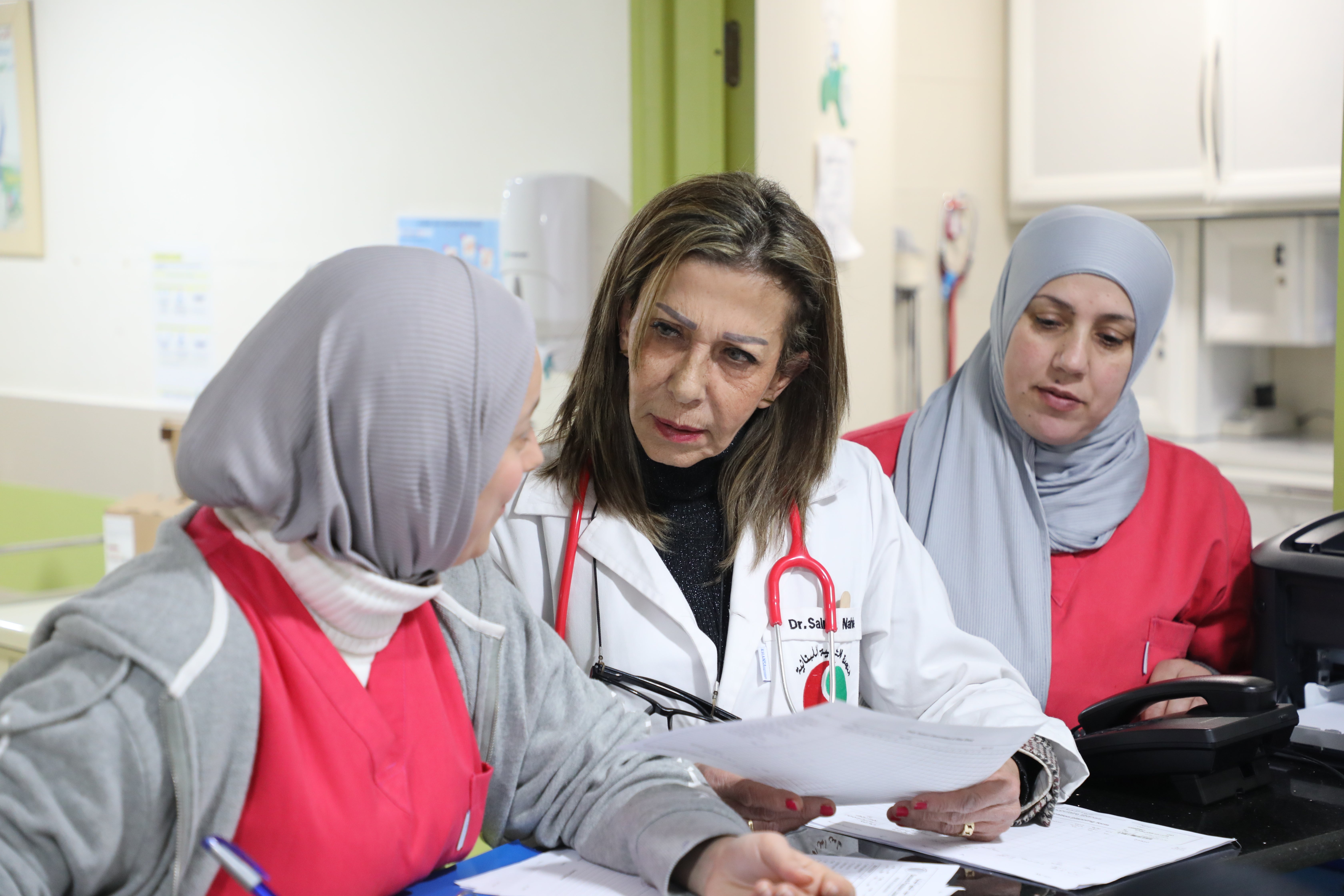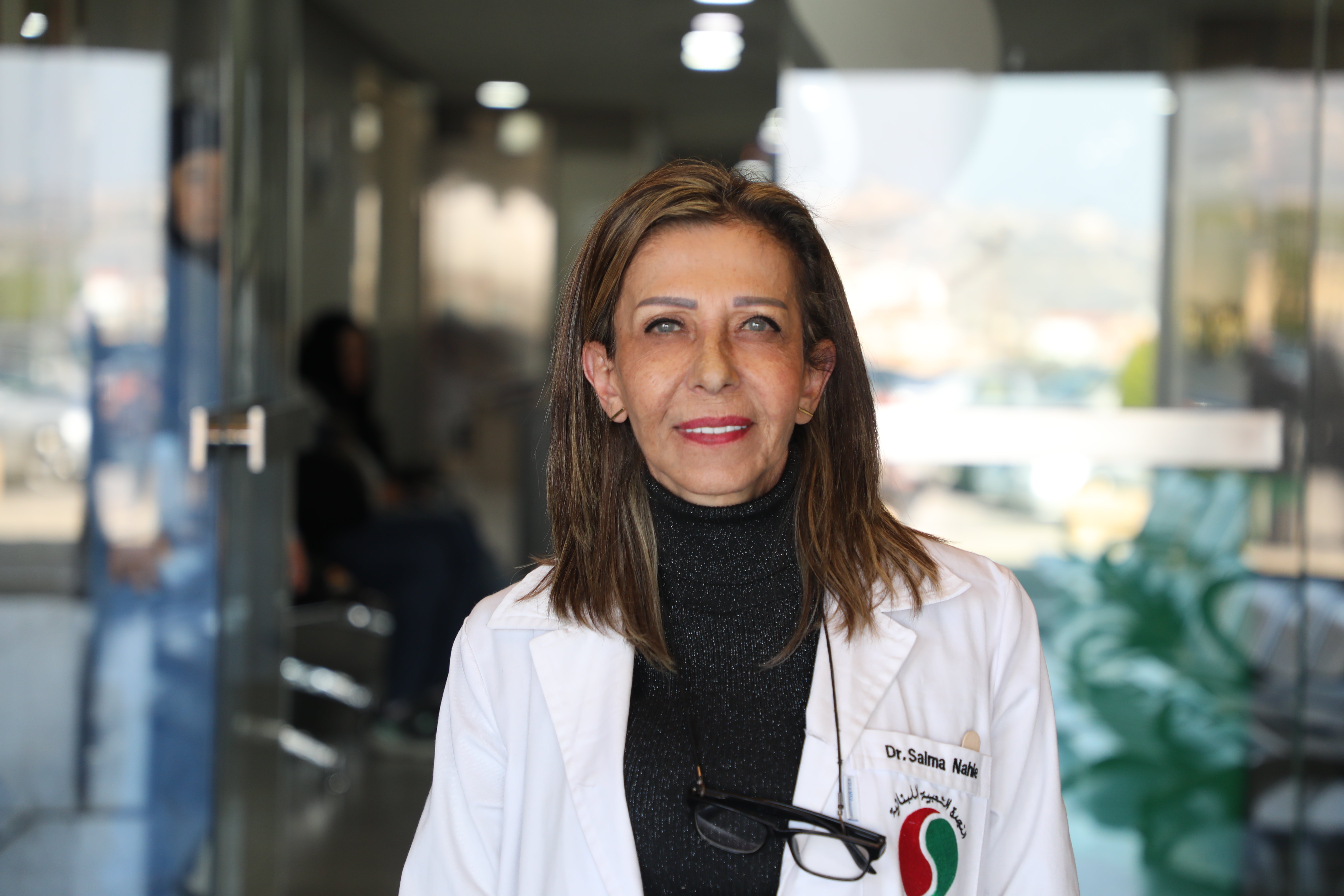In the words of Dr. Salma Nahle: “As the only female doctor at the hospital, I had to remain strong and be a role model for the women around me”
Date:
In the heart of southern Lebanon, where conflict and humanitarian crises have persisted for decades, Dr. Salma Nahle, a 66-year-old pediatrician and emergency physician from Nabatiyeh, has once again found herself at the forefront of conflict. She provided care amid the chaos at the Al-Najda Al-Chaabiya Allubnaniya Hospital in Habbouch. Driven by a profound humanitarian commitment, for her, providing medical care has become a powerful symbol of hope and resilience.
“For me, humanity is our most valuable asset. As a doctor, my experience working on the front lines in the south during the recent conflict was filled with challenges and struggles. Driven by my desire to help others, I dedicated myself to providing care and support to the wounded, pouring my energy into their recovery. I witnessed the profound pain and suffering of those caught in the conflict, reinforcing my belief in the critical importance of medical and humanitarian work during times of war.

My journey into humanitarian and volunteer work began when I was just 14 years old, joining the volunteer centre of the Al-Najda Al-Chaabiya Allubnaniya Association. My passion for helping others led the hospital administration to sponsor my medical studies abroad. Upon my return to Lebanon, I specialized in pediatrics and emergency medicine. For over 30 years, I have provided comprehensive care to my community, earning the respect and acceptance of all segments of society.
Before the onset of the conflict, my professional life was structured and predictable. I conducted regular patient visits in hospitals and clinics. However, once the conflict erupted, my life was turned upside down. We were thrust into a never-ending state of emergency with no organization and no sense of safety.
I spent 68 consecutive days [23 September–27 November 2024] in the emergency department, working tirelessly both day and night without a single break. I faced immense pressure due to the influx of injured patients, particularly during the initial days of the conflict, when the conditions of war were unprecedented, and the injuries were both severe and heart-breaking. Many of the wounded were my own relatives, neighbours and friends, making the experience all the more painful.
Conditions at the hospital were grim. We often examined patients in hallways or even on chairs by the entrance or in damp shelters. We endured long hours without food, sleeping in corridors and dealing with shortages of fuel. We had to adapt to extreme situations where hot water was scarce, forcing us to wash with cold water, even in cool weather.

My convictions are my foundation and inspire me to support my people and defend my land. This dedication came at a personal cost. I had to send my daughter and grandchildren away for their safety, hoping they would return one day when stability comes back to the region. I could have left, but that was not an option for me.
As the only female doctor at the hospital, I had to remain strong and be a role model for the women around me. I wanted them to feel empowered, not to succumb to fear or helplessness, but rather to have complete confidence in themselves.
Yet, through everything we endured in the south, we learned the necessity of being prepared for anything and developing effective strategies to cope with whatever challenges might arise. We had to remain strong and optimistic to continue our mission and overcome adversity.
Humanitarian work has always been my source of psychological comfort and conviction. Our motto in the hospital is ‘Together for Humanity’, which has inspired both men and women alike to persist in fulfilling our duties.
We are so tired, worn down by years of hardship and conflict, yet we continue to hold onto hope for a brighter future. I long for peace to reign in Lebanon, especially in the south, to bring an end to our enduring suffering and allow us to rebuild and heal together.”